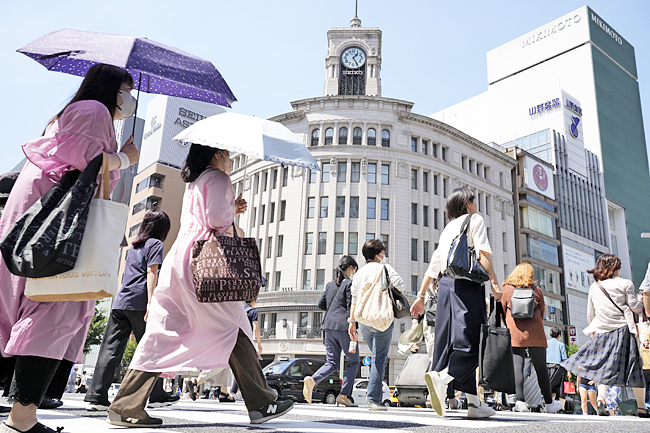TOKYO (AP) – Wages are rising in Japan more than they have in decades, at least for some workers.
But so are prices, leaving many people feeling they must scrimp more than ever.
In May, the consumer price index was up 3.2 per cent from a year earlier, well above the central bank’s target of about two per cent.
That’s great news for policymakers trying to get the world’s third largest economy out of the doldrums by keeping credit super cheap to spur demand and push prices higher.
But a government survey of companies with five or more employees found real wages, taking into account higher prices, fell three per cent from the a year earlier in April, marking the 13th straight month of declines.
Although all the major companies have raised wages this year, with large labour union members landing a four-per-cent hike, the highest in 30 years, a quarter of small and medium-size businesses – employers of more than two-thirds of all workers – gave no pay raises, according to the think tank Tokyo Shoko Research.

“My wages haven’t gone up at all,” said Kyoko Sano, a salesclerk at a Tokyo department store.
Sano feels a bit of a jolt when a cashier rings up her purchases and angst when she checks out prices of her favourite cookies, potato chips, rice crackers and drinks.
Prices have all jumped, and the usual discount offerings have disappeared. Her electricity bill keeps climbing.
“There’s no point in buying things like body lotion in advance before their prices rise. “Pretty soon you run out, and you end up having to go buy them, anyway. There’s an expiration date on cosmetics,” she sighed.
Japanese workers make less across the board than their counterparts in the United States (US) and Europe. Average pay in Japan is about three-fourths of the OECD average of about USD51,000.
In theory, a vibrant economy is supposed to lead to higher prices and wages. But purchasing power has to keep up to sustain consumer demand. It’s unclear that today’s inflationary pressures, set off by the rising costs for oil and other commodities, will spur the sort of positive growth cycle Japan’s been trying to achieve for years.
Wages have languished since Japan’s financial bubble burst in the 1990s, and the economy has stagnated. Employers held back on wage increases and risky investments but largely avoided mass layoffs, noted senior fellow at The Tokyo Foundation for Policy Research Hideo Hayakawa.
The rigid structure of Japanese workplaces also tends to crimp efficiency and productivity, a factor driving improved incomes and profits, he said.
Prime Minister Fumio Kishida, wants the minimum wage to rise to JPY1,000 (USD7.10) this year, up from JPY961, a key part of his “new capitalism” programme. He also advocates giving tax breaks to companies that raise wages.
“Realising a systematic rise in wages is a government priority,” Kishida said.






